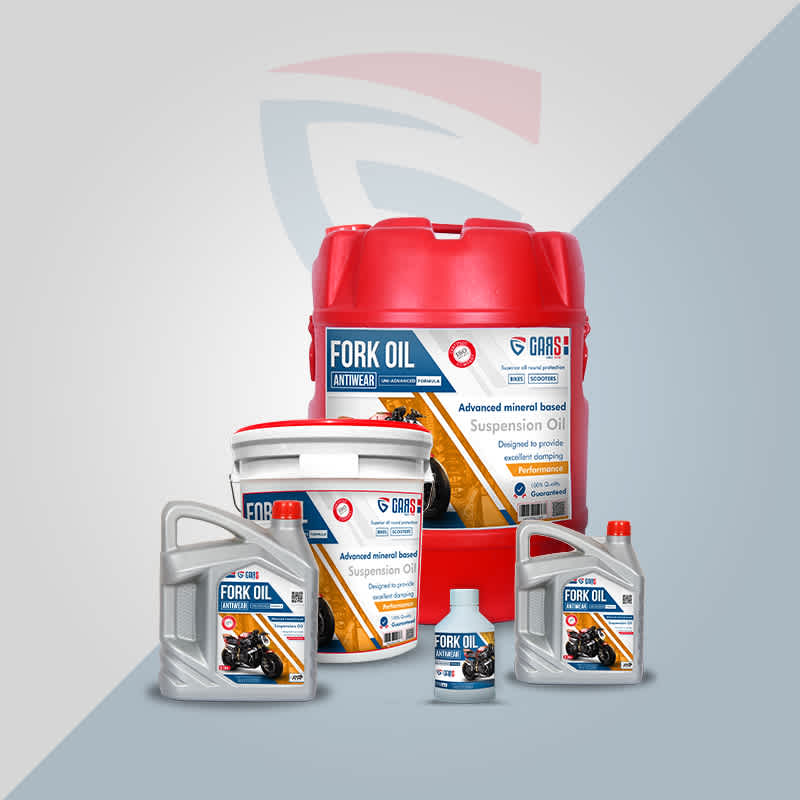
The suspension system of your bike plays a vital role in ensuring a smooth and controlled ride. At the heart of this system lies the fork oil. Though often overlooked, fork oil is a critical component that affects handling, stability, and overall performance. Choosing the best fork oil for bike can make a significant difference, whether you’re a daily commuter, a weekend rider, or an off-road enthusiast.
In this blog, we’ll explore what fork oil does, the types available, and how to choose the best one for your motorcycle.
What Is Fork Oil and Why Is It Important?
Fork oil is a specially formulated fluid used in the front suspension (forks) of motorcycles. It serves multiple purposes:
-
Lubrication: It reduces friction between moving parts inside the fork.
-
Damping: It helps control the compression and rebound of the suspension, ensuring a smooth ride over bumps and rough roads.
-
Heat Management: It absorbs and dissipates the heat generated during suspension movement.
Using the right fork oil improves ride comfort, handling, and the longevity of the suspension components. Conversely, poor-quality or worn-out oil can lead to harsh handling, reduced control, and potential damage to the fork internals.
Understanding Fork Oil Grades
Fork oils come in different viscosities, often referred to by weight, such as 5W, 10W, 15W, etc. The “W” stands for “weight,” and the number indicates the thickness of the oil.
-
Lower-weight oils (e.g., 5W): These are thinner and provide faster fork action. They are ideal for lighter bikes or smoother rides.
-
Higher-weight oils (e.g., 15W or 20W): These are thicker and provide slower fork action, making them suitable for heavier bikes or rough terrains.
It’s important to check your motorcycle manufacturer’s recommendation, as using oil with the wrong viscosity can negatively affect suspension performance.
Factors to Consider When Choosing the Best Fork Oil for Bike
When selecting fork oil, keep the following in mind:
1. Bike Type and Usage
Different bikes require different fork oil properties. For example:
-
Street bikes may perform well with 10W fork oil.
-
Off-road or motocross bikes may need heavier oil like 15W or 20W to handle extreme conditions.
-
Performance or racing bikes may use lightweight oil for quick fork response.
2. Manufacturer’s Specifications
Always consult your bike’s service manual. It typically recommends the suitable oil weight and quantity.
3. Riding Conditions
If you ride in colder climates, thinner oil might perform better. In hotter or rugged environments, thicker oil can provide better damping and durability.
4. Oil Quality and Brand Reputation
Choosing a reputable brand ensures the oil is tested, reliable, and consistent. Premium oils often include additives that improve performance and prevent corrosion.
When Should You Change Fork Oil?
Fork oil does not last forever. Over time, it degrades due to heat, pressure, and contamination. Common signs that it’s time to replace fork oil include:
-
Reduced damping (bike feels too soft or too stiff)
-
Leaking fork seals
-
Unusual noises from the suspension
-
Handling issues
As a general rule, fork oil should be replaced every 10,000 to 20,000 km or every 1–2 years, depending on usage. Engine oils in India are available in a wide range of formulations to suit different types of motorcycles and cars.
How to Change Fork Oil (Basic Overview)
Changing fork oil can be done at home if you’re comfortable with basic mechanical work. However, if you’re unsure, it’s best to have it done by a professional. Here’s a brief overview:
-
Lift the front wheel using a paddock stand.
-
Remove the front forks from the triple clamp.
-
Open the fork cap carefully.
-
Drain the old oil completely.
-
Clean internal parts if needed.
-
Refill with new fork oil to the correct level.
-
Reassemble and test ride to check performance.
Conclusion
Choosing the best fork oil for bike may seem like a small detail, but it has a big impact on ride quality and safety. The right fork oil ensures smoother suspension movement, better control, and longer-lasting components. Always consider your bike type, riding style, and manufacturer recommendations before making a choice.